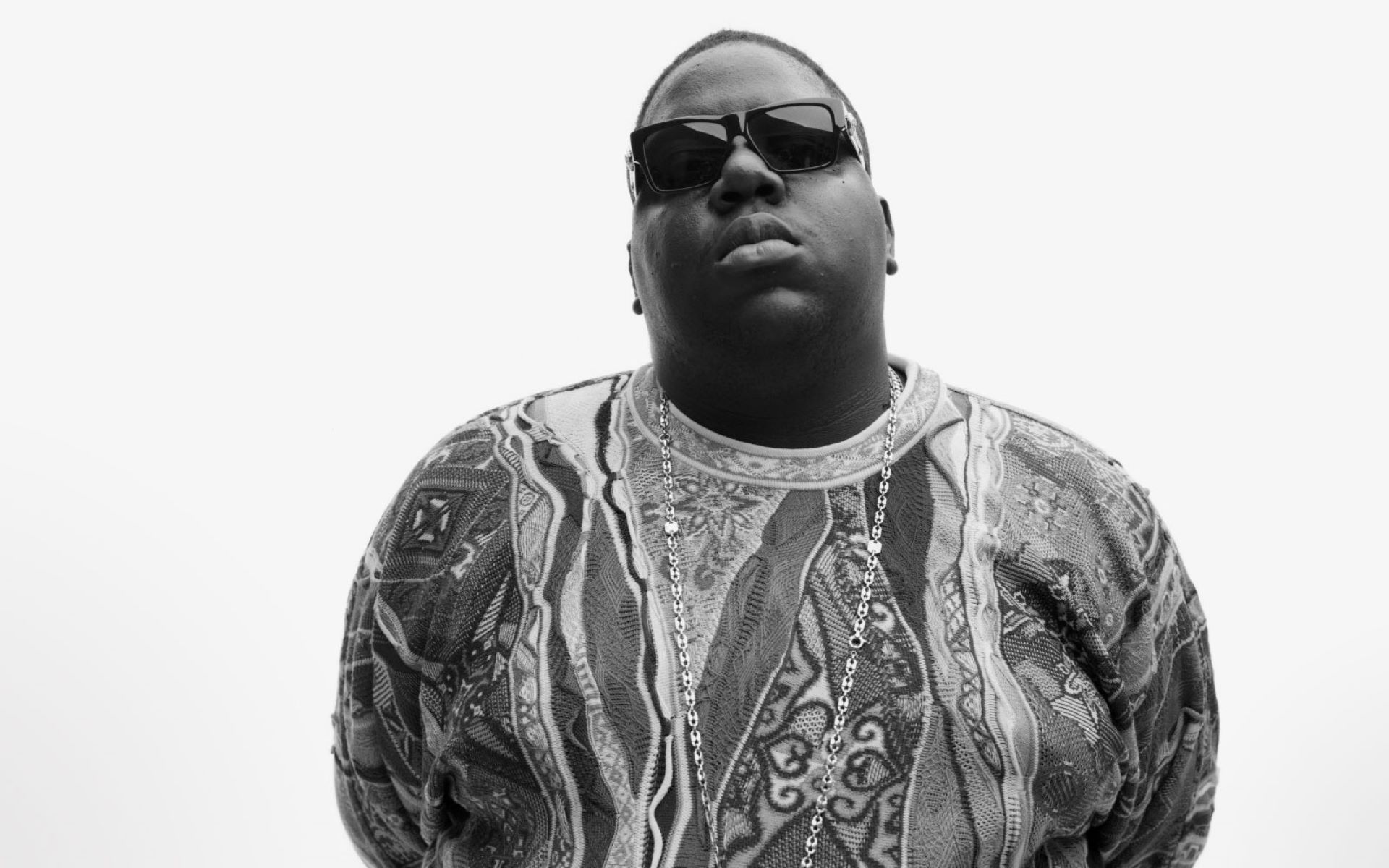Home>Production & Technology>Record Label>What Is The Best Record Label To Sign To


Record Label
What Is The Best Record Label To Sign To
Modified: January 25, 2024
Looking for the best record label to sign with? Discover top opportunities and guidance for advancing your music career with a reputable record label.
(Many of the links in this article redirect to a specific reviewed product. Your purchase of these products through affiliate links helps to generate commission for AudioLover.com, at no extra cost. Learn more)
Table of Contents
- Introduction
- Factors to Consider When Choosing a Record Label
- Major Record Labels
- Independent Record Labels
- Pros and Cons of Signing to a Major Record Label
- Pros and Cons of Signing to an Independent Record Label
- Case Studies: Successful Artists Signed to Major Record Labels
- Case Studies: Successful Artists Signed to Independent Record Labels
- How to Research and Evaluate Record Labels
- Conclusion
Introduction
Choosing the right record label to sign with is a crucial decision for any aspiring musician or band. A record label can provide valuable resources, connections, and promotion to help artists achieve success in the industry. However, with the multitude of options available, it can be overwhelming to determine which record label is the best fit.
In this article, we will explore the factors that should be considered when choosing a record label and discuss the pros and cons of signing with both major and independent record labels. We will also examine case studies of successful artists who have found success with different types of record labels. Lastly, we will provide guidance on how to research and evaluate record labels to make an informed decision.
When evaluating record labels, it is important to consider factors such as the label’s reputation, financial stability, distribution capabilities, promotion strategies, artist roster, and contract terms. Different artists may have different priorities, so it is essential to assess what matters most for your specific career goals and artistic vision.
Major record labels, also known as the “big three” (Universal Music Group, Sony Music Entertainment, and Warner Music Group), have substantial financial and marketing resources, established industry relationships, and global distribution networks. They often have the power to elevate an artist’s career to new heights, providing significant exposure and potential mainstream success. However, signing with a major label often comes with stricter contracts and limited creative control.
On the other hand, independent record labels, also known as indie labels, offer artists greater artistic freedom and flexibility in terms of their music and image. Indie labels are typically smaller and more niche-focused, allowing artists to cultivate a dedicated fan base and target specific genres or subcultures. The downside is that independent labels may have more limited resources and reach compared to major labels.
Throughout this article, we will explore the advantages and disadvantages of signing with both major and independent labels, providing insights and real-world examples to help you make an informed decision. Remember, ultimately, the best record label for you will depend on your individual goals, preferences, and the specific opportunities that align with your artistic vision.
Factors to Consider When Choosing a Record Label
When it comes to choosing a record label to sign with, there are several important factors that musicians and bands should consider. Here are some key aspects to keep in mind:
- Reputation: The reputation of a record label is crucial. Research the label’s track record, past successes, and how they have treated their artists. Look for testimonials or reviews from artists who have worked with the label to get a sense of their experiences.
- Financial Stability: It’s important to choose a record label that is financially stable. Consider the label’s financial resources, investment capabilities, and willingness to support and invest in their artists.
- Distribution: Distribution is a pivotal aspect of a record label’s role. Determine how well connected the label is in terms of physical and digital distribution networks. Look for labels that have a wide global reach and strong distribution partnerships.
- Promotion: A record label’s ability to effectively promote its artists is crucial. Research the label’s marketing strategies, online presence, social media engagement, and track record in promoting artists in your genre.
- Artist Roster: Take a look at the other artists signed to the label. Are they similar to your style or genre? Assess whether the label has a strong roster of artists that align with your music and career aspirations.
- Contract Terms: Carefully review and understand the terms of any contract before signing. Take note of the length of the contract, royalty rates, creative control, ownership of masters, and any potential restrictions or exclusivity clauses.
- Artistic Vision: Consider how well the label aligns with your artistic vision. It’s important to find a label that understands and supports your musical direction, allowing you the creative freedom to express yourself fully.
Remember, while these factors are essential to consider, each artist’s priorities and goals may differ. What may be crucial to one artist may not be as important to another. Take the time to reflect on your own needs, aspirations, and what you require from a record label partnership.
Major Record Labels
Major record labels, often referred to as the “big three,” dominate the music industry. These labels have significant resources, established connections, and global distribution networks. Here are the three major record labels:
- Universal Music Group: Universal Music Group is the largest record label in the world. It is home to numerous prestigious labels and subsidiaries, including Interscope, Def Jam, Republic Records, and Capitol Records. Universal Music Group has a vast catalog of artists covering a wide range of genres.
- Sony Music Entertainment: Sony Music boasts a diverse roster of artists and labels, including Columbia Records, Epic Records, RCA Records, and Arista Records. Sony Music Entertainment also has a strong presence in the global music market, with subsidiaries and operations in various countries.
- Warner Music Group: Warner Music Group is known for its impressive lineup of artists and labels such as Atlantic Records, Warner Records, Elektra, and Parlophone. The company has a long history of fostering successful careers for its artists and is renowned for its ability to connect with audiences worldwide.
Major record labels provide artists with substantial financial backing, extensive marketing campaigns, and broad distribution capabilities. Artists signed to major labels often benefit from access to prominent producers, songwriters, and collaborations with established artists. Additionally, major labels have well-established relationships with radio stations, streaming platforms, and media outlets, which can significantly enhance an artist’s exposure.
However, there are drawbacks to signing with major labels. Artists may have less creative control and artistic freedom, as labels may prioritize commercial success and mainstream appeal. Additionally, major labels typically retain a significant portion of an artist’s revenue through various deductions and royalties.
Nonetheless, signing with a major label can provide artists with invaluable opportunities, network connections, and the potential for significant career growth. It is important for artists to carefully consider their artistic goals, long-term aspirations, and the trade-offs involved before seeking a major label partnership.
Independent Record Labels
Independent record labels, often referred to as indie labels, operate outside of the major label system. While they may not have the same financial resources as the major labels, indie labels offer unique advantages for artists seeking a more personalized and creative approach to their music careers.
Independent record labels are typically smaller in size and focus on specific genres or niches. They have the flexibility to take risks and sign artists with unique styles or experimental sounds that may not fit the mainstream mold. Indie labels often have a closer artist-label relationship, allowing for more direct communication, creative input, and collaboration.
One of the significant advantages of signing with an independent label is the artistic freedom it provides. Artists have more control over their music, image, and overall creative direction. Indie labels are often open to unconventional and boundary-pushing projects, allowing artists to explore their creativity and build distinct identities.
Furthermore, indie labels foster a sense of community and support within their artist roster. Artists signed to indie labels become part of a tight-knit network, where they can collaborate with like-minded musicians, share resources, and benefit from personalized attention and guidance from label executives.
While independent labels may have a smaller reach and fewer resources compared to major labels, they often focus on grassroots promotion and building a dedicated fan base. Indie labels excel at connecting with niche audiences and fostering loyal fan communities. This targeted approach can lead to a more engaged and devoted fan base, which can be crucial for long-term success.
However, it is important to note that signing with an independent label may require artists to take on more responsibilities and be actively involved in promoting their music. Indie labels typically have fewer resources for marketing and distribution, so artists may need to be more hands-on and take an independent and entrepreneurial approach to their careers.
Overall, independent record labels offer artists a unique path in the music industry, providing artistic freedom, a supportive community, and the opportunity to carve out a distinct musical identity. Artists who prioritize creative control, niche appeal, and a closer connection with their label may find that signing with an indie label aligns with their goals and aspirations.
Pros and Cons of Signing to a Major Record Label
Signing with a major record label can be a dream come true for many artists, as it offers significant resources and opportunities to reach a massive audience. However, it’s essential to consider the pros and cons before making such a significant decision. Here are some of the advantages and disadvantages of signing to a major record label:
Pros:
- Financial Backing: Major record labels have substantial financial resources, which they can invest in various areas, including artist development, production, marketing, and promotion. This financial backing can give artists the opportunity to create high-quality music and build a strong brand presence.
- Global Distribution: Major labels have extensive distribution networks that can ensure wide availability of an artist’s music across physical and digital platforms worldwide. This global reach can significantly enhance an artist’s exposure and accessibility to a broader audience.
- Industry Connections: Major labels have established relationships with industry professionals, including producers, songwriters, and influential figures. These connections can lead to valuable collaborations and opportunities for artists to work with some of the industry’s biggest names.
- Marketing and Promotion: Major labels are well-versed in marketing and promotion strategies. They have the resources to implement sophisticated campaigns across various media channels, including radio, television, streaming platforms, and social media. This level of promotion can give artists the visibility and buzz needed to break into the mainstream.
- Mainstream Success: Major labels have a strong influence in the mainstream music industry, and signing with one can open doors to reaching a wide audience and potentially achieving mainstream success. This can lead to increased exposure, opportunities for touring, and potentially higher revenue streams.
Cons:
- Limited Creative Control: Signing with a major label often means relinquishing some degree of creative control. Labels may have strict expectations for an artist’s image, sound, and the type of music they release, all based on commercial considerations. Artists may have to compromise their artistic vision to align with label preferences.
- Lengthy Contracts and Royalty Deductions: Major label contracts can be long and complex, and artists should carefully review the terms before signing. These contracts often include clauses that grant the label a significant portion of the artist’s royalties and can restrict an artist’s ability to release music independently or collaborate with other artists.
- Competition and Pressure: Major labels usually have a vast roster of artists, and competition for attention and resources can be intense. Artists signed to major labels may face pressure to meet certain commercial expectations and may have to compete with label-mates for resources and promotional opportunities.
Ultimately, the decision to sign with a major record label should be carefully considered, weighing the advantages and disadvantages against an artist’s specific goals, artistic vision, and desire for creative control. It is important for artists to understand the trade-offs involved, negotiate favorable contract terms, and have a clear understanding of what they are willing to compromise in order to reach their career objectives.
Pros and Cons of Signing to an Independent Record Label
Signing with an independent record label, also known as an indie label, offers unique advantages and challenges for artists looking for a more personalized and artist-friendly approach to their music careers. While indie labels may not have the same financial resources as major labels, they provide distinct opportunities. Let’s explore the pros and cons of signing to an independent record label:
Pros:
- Artistic Freedom: Independent record labels are often more open to unconventional and experimental music styles. Artists signed to indie labels have greater creative control over their music, image, and overall artistic direction. This freedom allows artists to express themselves authentically and take risks creatively.
- Personalized Attention: Indie labels typically have smaller artist rosters, enabling them to provide more personalized attention to each artist. Artists can have more direct communication and collaboration with label executives, fostering a closer working relationship and a deeper understanding of their artistic goals.
- Niche and Subgenre Focus: Independent labels often specialize in specific genres or subgenres. This focus allows artists to tap into a dedicated fan base that appreciates their unique sound. Indie labels are better equipped to understand the target audience and effectively market the artist within their niche.
- Artist-friendly Contracts: Independent record labels tend to offer more artist-friendly contract terms, granting artists greater control over their music, ownership of masters, and a fairer distribution of royalties. These contracts can allow artists to maintain a higher percentage of their earnings and retain more creative rights.
- Community and Support: Indie labels often foster a sense of community and support among their artist roster. Artists can connect with like-minded musicians, share resources, and collaborate on projects. The supportive environment can provide valuable networking opportunities and a sense of belonging.
Cons:
- Limited Resources: Independent labels generally have fewer financial resources and may struggle to match the marketing budgets and distribution reach of major labels. Artists may need to take on more responsibilities, such as self-promotion and booking their own shows, to compensate for these limited resources.
- Smaller Reach: Indie labels typically have a smaller reach compared to major labels, resulting in a more localized or niche audience. This can make it more challenging for artists to break into the mainstream or reach a broader fan base beyond their target market.
- Less Industry Clout: Independent labels may have less industry clout and connections compared to major labels. This can limit exposure to influential industry professionals, including high-profile producers, songwriters, and collaborations with established artists. Artists may need to be more proactive in seeking out these opportunities independently.
- Increased Responsibilities: Artists signed to independent labels may be required to take on additional responsibilities, such as self-managing their careers, organizing their own tours, and handling logistical aspects of their music releases. This increased workload can be time-consuming and may require additional skills beyond just creating music.
When considering signing with an independent record label, artists should carefully evaluate their own priorities, long-term goals, and the trade-offs involved. Indie labels can provide a nurturing and artist-friendly environment, allowing artists to explore their creativity, maintain artistic control, and connect with a dedicated fan base. However, artists must also be prepared to take on more responsibilities and actively participate in their own career development.
Case Studies: Successful Artists Signed to Major Record Labels
Signing with a major record label has been a pathway to success for numerous artists across various genres. Let’s take a look at some case studies of successful artists who have found fame and recognition through their partnerships with major record labels:
1. Beyoncé: With a career spanning over two decades, Beyoncé’s partnership with Columbia Records (a subsidiary of Sony Music Entertainment) has played a significant role in her success. The label provided her with extensive promotion, distribution, and marketing campaigns, helping her become one of the most influential and successful artists of our time.
2. Ed Sheeran: Ed Sheeran’s rise to stardom was propelled by his partnership with Atlantic Records (a subsidiary of Warner Music Group). The label supported him with tailored marketing strategies and global distribution, enabling him to reach a massive audience and achieve chart-topping success with hits like “Shape of You” and “Thinking Out Loud.”
3. Taylor Swift: Taylor Swift initially signed with Big Machine Records, an independent label. However, her career reached new heights when she joined forces with Republic Records (a division of Universal Music Group) for her later releases. The major label provided her with immense promotion, international distribution, and helped solidify her as a global superstar.
4. Drake: Drake’s partnership with Cash Money Records (a subsidiary of Universal Music Group) has been instrumental in his success. The label’s extensive industry connections and marketing strategies helped launch his career, and he has gone on to become one of the most influential hip-hop artists of the past decade.
5. Adele: Adele’s breakthrough success came after signing with XL Recordings, an independent label that partnered with major label Columbia Records (part of Sony Music Entertainment) for international distribution. This collaboration played a vital role in promoting her soulful voice and heartfelt songs, leading to her global recognition and numerous awards.
These case studies showcase the power of major record labels in catapulting artists to success. Through their extensive resources, distribution networks, and industry connections, major labels can provide the platform and support needed to reach a wider audience and achieve mainstream success. However, it’s important to note that each artist’s journey is unique, and success is also driven by individual talent, hard work, and market demand.
Case Studies: Successful Artists Signed to Independent Record Labels
While major record labels often dominate the industry, many successful artists have chosen to sign with independent record labels, proving that success can be achieved outside of the major label system. Here are some notable case studies of artists who have thrived under independent label partnerships:
1. Radiohead: Radiohead found critical acclaim and commercial success through their partnership with XL Recordings. The band’s independent label affiliation allowed them the creative freedom to experiment and push boundaries with their music, resulting in iconic albums like “OK Computer” and “Kid A.”
2. Macklemore & Ryan Lewis: Before achieving mainstream success with their hit single “Thrift Shop,” Macklemore & Ryan Lewis released their music through their self-run independent label. Their grassroots marketing strategies and DIY approach propelled them to global stardom and garnered multiple Grammy Awards.
3. Chance the Rapper: Chance the Rapper’s breakthrough success came through his mixtapes, released independently without the backing of a major label. His innovative approach to distributing his music directly to fans and his strong grassroots fan base led to critical acclaim, commercial success, and historic Grammy wins as an independent artist.
4. Arctic Monkeys: The Arctic Monkeys rose to prominence with their debut album “Whatever People Say I Am, That’s What I’m Not” released under the independent label Domino Records. The band’s unique sound and grassroots fanbase propelled their success, leading to massive worldwide recognition.
5. Bon Iver: Bon Iver’s debut album “For Emma, Forever Ago” gained widespread acclaim after its independent release. The album’s emotive folk sound resonated with audiences, leading to Grammy wins and establishing Bon Iver as a critically acclaimed and influential artist.
These case studies demonstrate that independent record labels can provide artists with the creative freedom, flexibility, and supportive environment needed to cultivate their artistic vision and connect with a loyal fan base. Artists who choose to sign with independent labels often have greater control over their music, image, and overall career direction, allowing them to craft a distinctive and authentic sound.
While independent labels may have limited resources compared to major labels, these case studies show that artists can achieve immense success through innovative marketing strategies, word-of-mouth promotion, and cultivating a passionate fan community. By staying true to their artistic vision and leveraging the strengths of their independent labels, these artists have proven that success can be attained outside of the traditional major label model.
How to Research and Evaluate Record Labels
Researching and evaluating record labels is crucial to finding the right fit for your music career. Here are some steps to help you navigate this process:
- Do Your Homework: Start by gathering information about the record labels you’re interested in. Visit their websites, social media platforms, and streaming profiles to learn about their artist roster, past releases, and overall brand identity. Pay attention to the genres they specialize in and whether they align with your musical style.
- Read Reviews and Testimonials: Look for reviews and testimonials from artists who have worked with the label. This can provide valuable insights into the label’s reputation, artist support, and overall experiences. Seek out independent sources and industry publications to get a well-rounded perspective.
- Consider the Label’s Track Record: Evaluate the label’s track record in terms of successful artist development and career growth. Research if they have a history of nurturing long-term artist relationships or if they have a tendency to focus on short-term commercial success.
- Assess the Label’s Financial Stability: Research the label’s financial stability and investment capabilities. Look for signs of sustainable growth, secure funding, and a commitment to artist development. A financially stable label is more likely to provide the necessary resources and support for your musical journey.
- Evaluate Distribution and Marketing Strategies: Examine the label’s ability to distribute and promote their artists’ music. Assess their connections to physical and digital distribution networks, marketing campaigns, and their online presence. Look for evidence of proactive promotion and engagement with fans.
- Network and Seek Recommendations: Reach out to fellow musicians, industry professionals, and music communities to gather insights and recommendations. Networking can provide valuable firsthand experiences and recommendations for reputable record labels.
- Review Contract Terms: If you are close to signing with a label, thoroughly review the contract terms. Pay specific attention to royalty rates, contract length, creative control, ownership of masters, and any exclusivity clauses. Seek legal advice if necessary to ensure you understand the implications of the contract.
- Consider Personal Fit: Assess how well your artistic vision aligns with the label’s overall philosophy and artist roster. Consider if the label appreciates and understands your creative direction and if they provide the necessary support to help you achieve your goals.
- Trust Your Instincts: Ultimately, trust your instincts when evaluating record labels. Consider the goals and values most important to you and weigh them against the information you’ve gathered. Choose a label that aligns with your vision and feels right on a personal level.
Remember, research is vital in making an informed decision, but it’s also important to balance that information with your own intuition and goals. By conducting thorough research, seeking advice, and carefully evaluating record labels, you can increase your chances of finding the right partnership that will support your music career and artistic growth.
Conclusion
Choosing the right record label is a critical decision for artists looking to establish themselves in the music industry. Whether you opt for a major record label with its vast resources and global reach, or an independent label offering artistic freedom and a supportive community, it’s important to carefully consider your goals, creative vision, and long-term aspirations. By weighing the pros and cons of each type of label, researching their track records, and evaluating their fit with your artistic direction, you can make an informed decision that aligns with your priorities.
Major record labels provide significant financial backing, extensive promotion, and access to industry connections that can elevate an artist’s career to new heights. However, they may come with limitations on creative control and require greater commercial compromises. On the other hand, independent record labels offer greater artistic freedom, personalized attention, and the opportunity to connect with niche audiences. But they may have limited resources and reach.
Through case studies, we have seen artists thrive under both major and independent labels, showcasing the potential for success in each landscape. Artists like Beyoncé and Ed Sheeran have achieved tremendous success with major labels, while Radiohead and Chance the Rapper have flourished independently. The key is to find the label that aligns with your artistic vision, goals, and values.
Researching and evaluating record labels is crucial in making the right decision. By doing your homework, reading reviews, assessing the label’s reputation, financial stability, distribution capabilities, and marketing strategies, you can gain insights into their track records and artist support. Seeking recommendations, reviewing contract terms, and trusting your instincts will further guide your decision-making process.
Ultimately, there is no one-size-fits-all answer to which type of record label is the best. It depends on your individual needs, aspirations, and the opportunities that align with your artistic vision. Whether it’s the extensive resources of a major label or the artistic freedom of an independent label, the right partnership can launch your career, amplify your music, and connect you with a dedicated fan base.
Remember, signing with a record label is not the only path to success. With the rise of independent distribution platforms and the ability to self-promote, artists now have more options than ever before. Ultimately, what matters most is staying true to your artistry, connecting with your fans, creating great music, and continuously exploring opportunities for growth.











